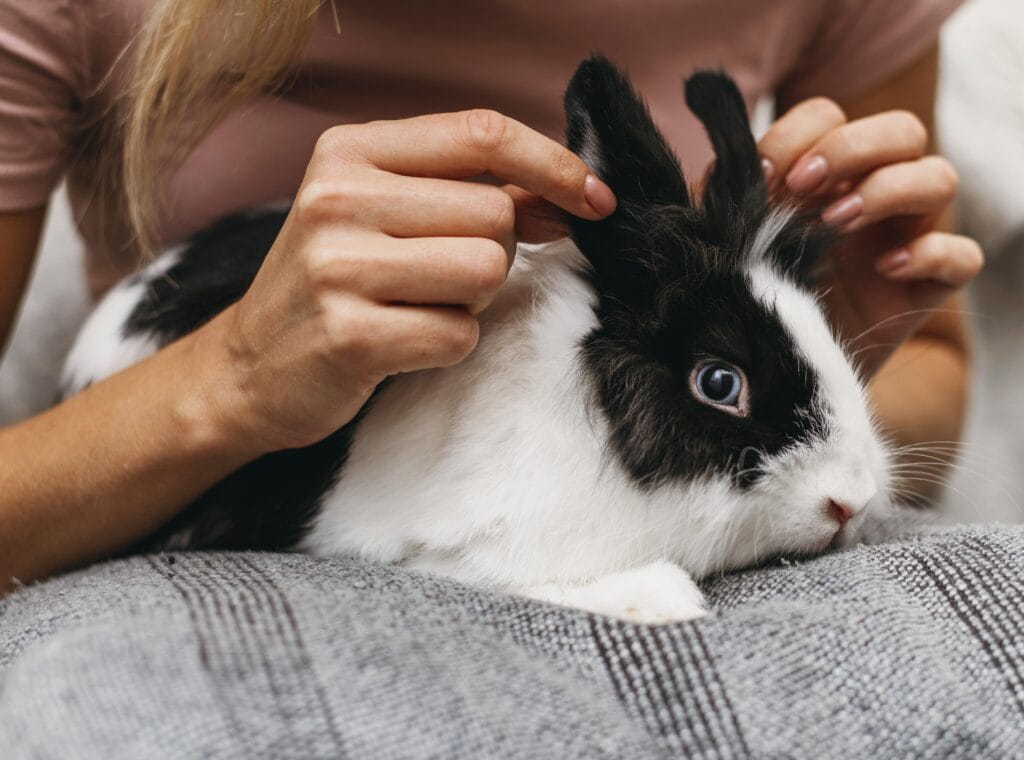As pet owners, we want the best for our rabbits, especially their health. One common issue many bunny parents face is ear infections. These infections can cause discomfort and lead to serious complications if left untreated. But don’t worry – there are effective rabbit ear infection home treatments that you can use to help your furry friend feel better.
In this blog post, we’ll walk you through how to spot the signs of an ear infection in your rabbit, how to treat it at home, and when to seek professional help.
What Causes Ear Infections in Rabbits?
Before diving into treatments, it’s essential to understand what causes ear infections in rabbits. Ear infections in rabbits can be caused by:
- Bacterial or fungal infections – Often result from bacteria or fungi entering the ear canal.
- Ear mites – Tiny parasites that can cause irritation and inflammation.
- Poor hygiene – A buildup of wax and dirt can lead to infections.
- Trauma or injury – Any injury to the ear can lead to infection if not properly cared for.
Suppose your rabbit is showing signs of ear discomfort. In that case, treating the issue quickly is crucial to avoid further health complications.
How to Spot an Ear Infection in Your Rabbit
Recognizing the signs of an ear infection in rabbits early is key to successful treatment. Here are some common symptoms to look out for:
- Head shaking or tilting – Rabbits may shake their heads to relieve discomfort or tilt their heads if one ear is more affected.
- Ear discharge – A dark, waxy, or smelly discharge from the ear could indicate infection.
- Scratching or pawing at the ears – Rabbits often try to relieve irritation by scratching at their ears.
- Balance issues – An ear infection can affect their sense of balance in severe cases.
- Redness or swelling in the ear – The ear may appear inflamed or irritated.
If you notice these signs, it’s time to consider treatment.
Rabbit Ear Infection Home Treatment: Step-by-Step Guide
While professional veterinary care is always recommended for severe cases, mild ear infections can often be managed with home treatment for rabbit ear infections. Here’s a step-by-step guide:
Step 1: Clean the Ears
- Use a rabbit-safe ear cleaner: Gently clean your rabbit’s ears with a soft cloth or cotton ball soaked in a mild, vet-recommended ear cleaner. Avoid using harsh chemicals or alcohol, as these can irritate the ear canal.
- Remove dirt and wax: Be gentle, as rabbits’ ears are delicate. Clean the inside of the ear and remove any visible debris.
Step 2: Apply a Topical Treatment
- Use antifungal or antibiotic ointments: If your vet recommends, you can apply an antifungal or antibiotic ointment to treat the infection. Make sure to follow the instructions carefully and use the ointment sparingly.
- Ear mite treatments: If ear mites cause the infection, use over-the-counter ear mite treatments specifically designed for rabbits.
Step 3: Keep Your Rabbit’s Environment Clean
- Clean your rabbit’s bedding and living area: A clean environment prevents reinfection. Regularly clean their cage, bedding, and toys to minimize exposure to bacteria and mites.
Step 4: Monitor Your Rabbit’s Symptoms
- Watch for improvements: After a few days of treatment, observe your rabbit. If they are getting better, continue cleaning and applying treatment. If symptoms persist or worsen, contact your vet.
When to Seek Veterinary Care
While home treatments can be effective for mild cases, there are times when you should seek professional help. If your rabbit shows any of the following signs, it’s best to take them to a vet:
- Persistent head tilting or balance issues.
- Severe ear discharge with a strong odor.
- Loss of appetite or significant behavior changes.
- Increased pain or swelling.
A vet can perform a thorough examination, prescribe stronger medications, or even conduct tests to identify the cause of the infection.
Prevention: How to Keep Your Rabbit’s Ears Healthy
Preventing ear infections is always better than treating them. Here are a few tips to help keep your rabbit’s ears healthy:
- Regular ear cleaning: Clean your rabbit’s ears regularly to prevent wax buildup, but don’t overdo it. Once a month is typically sufficient.
- Maintain a clean living space: Keep your rabbit’s environment free from dirt and debris, as a clean habitat will reduce the risk of ear infections.
- Check for ear mites: If you notice your rabbit scratching their ears excessively, inspect their ears for ear mites and treat them immediately.
- Proper diet: A balanced diet rich in hay and fresh vegetables will keep your rabbit’s immune system strong.
Conclusion
Ear infections in rabbits are a common issue. Still, they can be treated effectively at home with the proper care and attention. If you notice early signs of infection, gently clean your rabbit’s ears, apply the right treatments, and monitor their condition closely. However, if symptoms persist or worsen, don’t hesitate to consult a veterinarian.
By maintaining a clean environment and regularly checking your rabbit’s ears, you can help prevent future ear infections and keep your rabbit healthy and happy.


